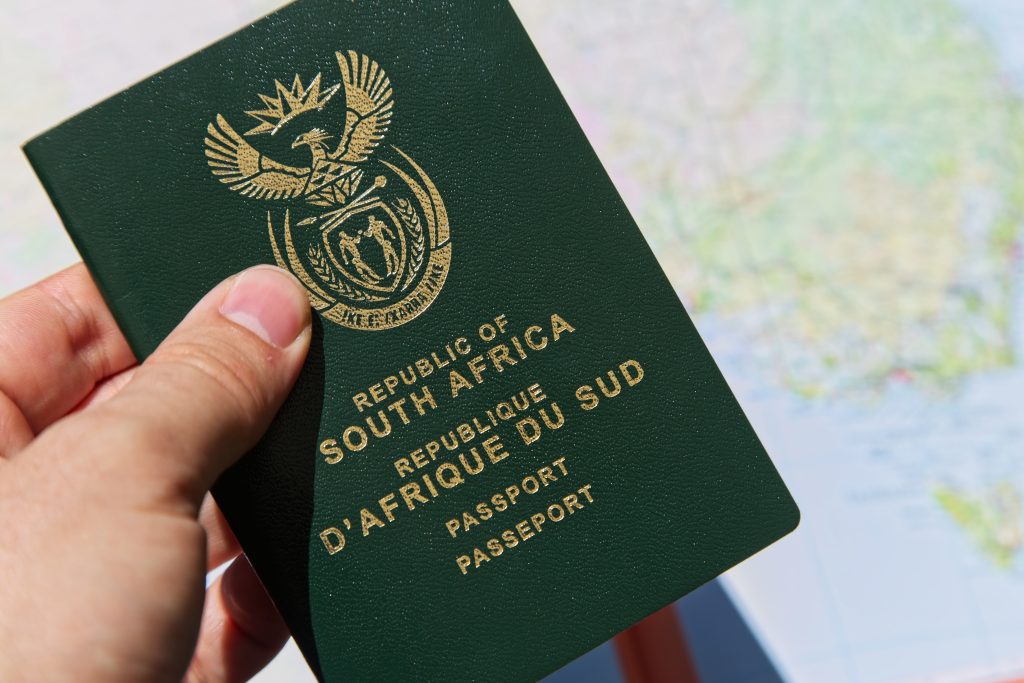Financial migration terminology 101
Emigrating from South Africa presents a host of novel challenges – you’ll find you have to acquaint yourself with regulations, procedures and terminology you’d never have had to concern yourself with had you stayed on native soil.
But once you move to a foreign country, you can no longer rely on, say, your South African banker, financial adviser or that friend-who-knows-everything to assist you with your necessary admin. You’ll have to learn the ins and outs of financial migration in order to understand how you can transfer funds across borders, which routes to follow, how to maximise your revenues and, most importantly, how to do all these things legally.
So we thought it good to round up a list of the most important financial terms, their meanings and what significance these terms hold for you as South African emigrant.
Financial migration terminology and rules explained
Financial emigration
Financial emigration is a term used to define the financial status of South Africans living abroad. It is used by the South African Reserve Bank (SARB) and South African Revenue Service (SARS) to determine the rules applicable to the in- and outflow of their money across South African borders. Financial emigration does not affect your citizenship in any way, but merely changes your financial status for exchange control purposes from resident to non-resident. Your right to hold a South African passport is also completely unaffected.
Emigrant capital account
An emigrant capital account is the sole account used by financial emigrants for fund transfers in and out of South Africa. This account, which is also known as a blocked account, can be held at any of the major South African banks and is overseen by a specialist banker within the respective institution’s non-resident centre. Once you have emigrated financially you will not be able to use any other South African accounts to manage the flow of your money across borders, but despite this restriction the “blocked account” simplifies the flow of your money across borders.
Capital transfer allowances
South Africans living abroad may transfer funds offshore via their annual capital transfer allowances. There are two types of allowances – a Single Discretionary Allowance (SDA) and a Foreign Investment Allowance (FIA). Individuals who wish to transfer up to R1 million per year offshore can use their SDA and only need their green bar-coded ID document or smart card to transact. Those who wish to transfer amounts between R1 million and R10 million can do so under their FIA. They will also need their green bar-coded ID document or smart card but a tax clearance certificate from SARS is an additional requirement. The allowances are renewed in each successive calendar year. It is also permissible to move funds between spouses when applying these limits.
Fund encashment and offshore transfer
South African emigrants are allowed to encash their retirement savings (pension, provident, preservation and retirement annuities) and expatriate the funds offshore before retirement age (55). The amounts you can transfer will depend on the type of funds, fund rules and the tax payable. Funds which cannot be encashed include life and living annuities unless the values fall below certain thresholds.
Retirement annuities
A retirement annuity is a tax-efficient method to save for retirement; it offers individuals the opportunity to select appropriate investment portfolios and contribute on a regular basis in order to provide for retirement. Many individuals choose to invest in retirement annuities in addition to their pension or provident funds. The earliest retirement age for these annuities is age 55, however as an expat you have the option to surrender a retirement annuity in full and transfer the proceeds, net of tax, to your new home.
Pension funds
A pension fund is a pooled retirement fund, offered by an employer, which provides stable growth over the long term. Generally, people keep their money in their pension funds or transfer it to a preservation fund until retirement age when they will enjoy a lump sum payout as well as monthly income based on the value of their retirement fund. As a South African living overseas you may have the option to transfer the proceeds of your pension fund offshore before retirement age; however, this will depend on fund rules and timing.
Provident funds
A provident fund is essentially the same as a pension fund save for the encashment and taxation rules. Since employers claim tax deductions on provident fund contributions, individuals who contribute to these funds on their own will receive the money back tax-free on retirement. Before March 2016 provident fund members could withdraw 100% of their fund upon resignation, but the new system allows a maximum of 27,5% deductibility across all three funds (pension, retirement annuity and provident fund).
Preservation funds
A preservation fund serves as a savings fund into which proceeds from a pension or provident fund are paid. Proceeds are transferred to a preservation fund when an individual leaves the employment of a company due to dismissal, retrenchment or resignation. It preserves retirement investments and tax benefits.
Deferred pension funds
If you have previously contributed to an employer’s pension fund and decided to leave your benefits in this fund upon resignation, you are considered a deferred member of the fund. Upon retirement you can receive benefits from the fund, or these benefits may be payable to your dependants upon death.
Life and living annuities
Life and living annuities are retirement investment products which provide an income from your retirement savings. With living annuities you can choose your income level and investments (higher risk) while life annuities are subject to annual checks to determine the best time to annuitise (lower risk). Policy surrender for these annuities is only possible if they fall below certain, relatively low, thresholds but you may be allowed to adjust the payment frequency within certain parameters.
Unit trusts
A unit trust fund is a pooled resource, which means that it allows a group of investors to combine their cash and invest it. The proceeds can be transferred offshore whenever you choose, subject to compliance with exchange control rules. Capital gains tax may be payable depending upon the value of the fund and growth over the investment term.
Endorsements
Endorsements are amendments to insurance policies such as change of ownership, change of debit order, change of coverage, cancellation, insured changes and other miscellaneous changes.
DTA
A Double Taxation Agreement (DTA) is a treaty between two countries which serves to safeguard individuals moving between these countries from being taxed twice. Under a DTA, individuals may also qualify for reduced withholding tax rates on interest paid to foreign persons or institutions. If there is a DTA in place between South Africa and your new country of residence, there may be certain tax planning opportunities available to you.
RST01
The RST01 is a directive to insurers which halts further tax deductions on your annuity income. The application is submitted to SARS, who will then issue a directive to your respective insurers, instructing them to cease deducting tax from your pension or annuity income. The application needs to be renewed annually but it may lead to significant tax savings.
RST02
The RST02 is an application submitted to SARS which will see to a refund on tax levied under a DTA. This could see you earn significant rebates in relation to the withdrawal tax paid when surrendering retirement products.
POPI
The Protection of Personal Information Act is South African legislation which was signed into law on 26 November 2013. It requires service providers to safeguard the personal information of consumers. Under this act individuals need to give consent and be allowed to see what information is shared and for which purpose; they must be able to choose if they want their data removed, they must have access to the information stored by service providers and they may require that service providers capture their information accurately. Even though you are living abroad, all information gathered, stored and used within South African borders is still regulated by POPI.
FPSB
The FPSB is the Financial Planning Standards Board which upholds professional standards for financial planning in South Africa. Financial services providers who give advice to their clients or the public are required to comply with the standards and regulations of the FPSB. Being registered with the FPSB in South Africa, however, does not authorise providers to give advice outside their jurisdiction – which means many South African financial services providers are not allowed to assist you with your financial portfolio in your new home.
SAICA
SAICA is the South African Institute of Chartered Accountants. In order to be recognised as a qualified chartered accountant, South African service providers operating within the financial services sector who want to provide services and advice within the ambit of chartered accounting (traversing taxation, auditing and financial management), need to be registered with an official body like SAICA and comply with their proficiency requirements.
CFP
A Certified Financial Planner (CFP®) is an individual who is authorised by the FPSB to provide financial planning and advice. This qualification is necessary for individuals with designations such as internal broker consultants, financial planners, brokers, financial advisers, wealth managers, compliance officers, portfolio managers, tax planners, actuaries and financial consultants. CFPs are authorised to provide assistance in their respective jurisdictions only.
Share on
Latest articles




















